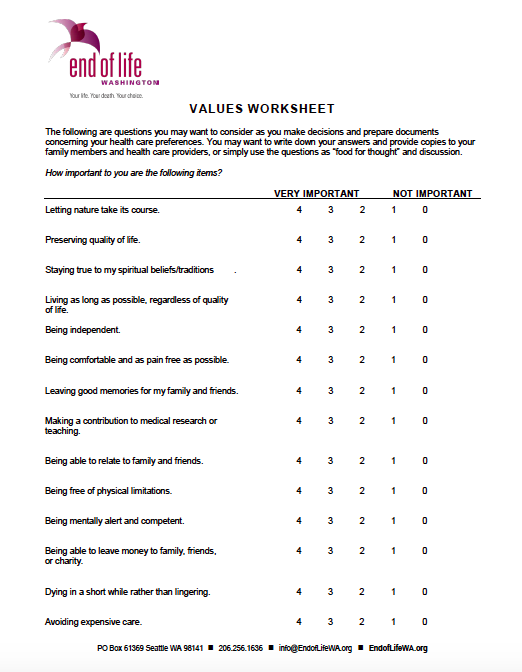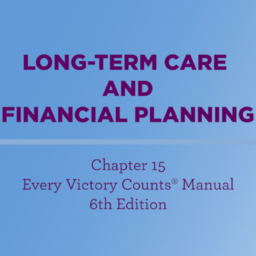This past December in Seattle, we had the pleasure of hearing Sally McLaughlin speak about advance directives at The Victory Summit® event.
This topic is not an easy sell. Who among us is excited about preparing for the day when we can’t make decisions or are facing the end of our lives?
However, Sally was such a fabulous speaker and champion of advance directives that we found ourselves begging for more. If you were able to join us for her session at the event, you know what we mean. If not, we hope to impart the value we received from Sally so that you will be excited to prepare for your future as well.
What is an advance directive?
According to CaringInfo.org, advance directives are “legal documents that allow you to plan and make your own end-of-life wishes known in the event that you are unable to communicate. Advance directives consist of (1) a living will and (2) a medical (healthcare) power of attorney. A living will describes your wishes regarding medical care. With a medical power of attorney, you can appoint a person to make healthcare decisions for you in case you are unable to speak for yourself.”
While the definition is clear and specific, figuring out what to put in your living will is more challenging than you think.
To help us get in the right frame of mind, Sally started us off by talking about one of the most important parts of preparing to write a living will - getting clear on our values.
She began reading off items from the end of life Washington’s Values Worksheet, and we gave a thumbs up, thumbs down and neutral sign depending on we felt about each one. The most fascinating part of the exercise was seeing how people’s values differed based on their age, health, gender, income and the level of family and support they had.
It also drove home the point that we often think people know what we value when very often they don’t. That’s why it’s so important to share this information with your family and loved ones.
Sally recommended that everyone in the room make copies of the values worksheet and break it out at the next family dinner. Not only is it a fun way to get to know more about the people you love, and let them know what’s important to you, but it’s also a non-threatening way to begin the advance directive process.
6 Steps to Create Your Advance Directive
Step #1 - Obtain the Right Documents
You can find your state's Living Will or Advance Health Directive forms here.
Step #2 - Complete the Values Worksheet
You can do this alone, but it might help to share your thought process with someone else so you make sure you don’t miss anything and are able to convey what’s most important to you when it’s time to get it all down on paper.
Step #3 - Complete Your Living Will
A Living Will is a legal document that specifies the types of treatments you do or do not want at the end of your life, if you are ill and won’t likely recover or if you are in a coma and are not likely to come out of it.
As you complete your Living Will, you should clarify your desires related to:
- Cardiopulmonary resuscitation (CPR)
- Do not resuscitate order (DNR)
- Do not intubate order (DNI)
- Blood transfusions
- Dialysis
- Artificial nutrition and hydration
- Organ donation
Once your Living Will is signed by you and your witness or witnesses, it is legally binding. It goes into effect, however, only once you are deemed incompetent AND incapacitated by at least one doctor. If you are just incapacitated and are likely to get better, your Living Will will not go into effect.
*Be sure to revisit and revise your Living Will as necessary. It’s good practice to review it every five years or after significant life changes to make sure it still represents what you want.
Step #4 - Choose Your Medical Power of Attorney
This should be someone you trust completely to help carry out your wishes. This is not an easy role to be in, especially if, for example, you have a large family of people who love you. When the tough decisions have to be made, your medical power of attorney will have to do so even if it’s not the decision everyone else in the room wants. Be careful in choosing this person and make sure they are comfortable taking on this role.
*Be sure to revisit this as often as necessary. Your relationships with people may change over the years and the person you choose today may not be the same one you want five years from now. In addition, the person you assign as your medical power of attorney today may pass away or be too ill themselves to make decisions for you in the future. Whenever this relationship changes, be sure to assign a new person you trust as soon as possible.
Step #5 - Have a Witness Sign Your Documents
You must have someone who is over 18 and is not your medical power of attorney witness and countersign your documents to make them legal. Check the laws in your state as some require a notary and others do not.
Step #6 - Share It and Carry It
Once you’ve completed your documents, share it with the key people in your life, leave a copy in your home that’s easy to find and put a copy in your travel bags and leave it there so it’s available if anything happens.
Advance directives are not the most exciting things to think about; however, if you care about the end of your life and the people who are likely to experience that with you, it’s a necessary plan to put in place. And as many people in the session remarked, having this in place gives them peace of mind, and when you’re living with Parkinson’s, that can be worth a great deal.
If you’d like to learn more about advance directives, we encourage you to dig through Washington’s end of life library. It will be useful to you even if you don’t live in Washington.
Disclaimer: The blog of the Davis Phinney Foundation is meant purely for educational purposes. Nothing on this blog is offered as legal advice, and it should not be treated as such. You must not rely on the information on this website as an alternative to legal advice from your attorney or other professional legal services provider. If you have specific questions about a legal matter, you should consult your attorney or other progressional legal services provider.








